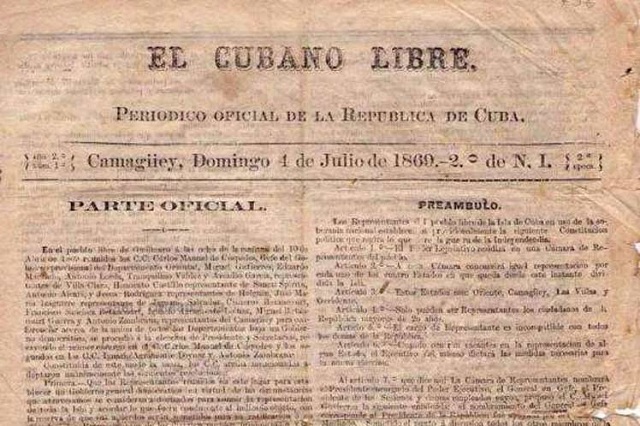Havana: The reissue 125 years ago of the newspaper El Cubano libre, by the pro-independence hero Antonio Maceo, shows the leading role that the ideological battle had in Cuban libertarian feats, Prensa Latina publishes.
Its importance was recognized by Maceo himself, when he defined it in a letter to its director, Captain Mariano Corona Ferrer, as “an army corps made up of 12 columns that fights, fights well, daily, for the cause of Cuba”, and warned: ?The Spanish would give everything to give it a load. Be careful and tighten?.
The subordinates of the Bronze Titan, as Mambi Lieutenant General Antonio Maceo Grajales is known, must have been perplexed when, after finding an abandoned old printing press, their boss decided to move it and make it work instead of using lead to manufacture projectiles and nurture the always insufficient ammunition park.
The importance of reissuing, in 1895, the first independent newspaper with a patriotic essence founded 27 years earlier, in 1868, by El Padre de la Patria, Carlos Manuel de Céspedes, in Bayamo would soon become apparent.
From a cave in the Holguín jurisdiction, also in the old Oriente province, the new version of El cubano libre published nearly 100 editions.
In them, the troop and the Cuban emigration were informed weekly about the details of the war, decrees, proclamations, manifests and other documents of the Government of the Republic of Cuba in Arms.
His printing press also served to edit, in 1896, the first booklet, to alphabetize and extend culture among the combatants.
Among his collaborators, The Free Cuban had the National Hero, José Martí, who years ago, in 1892, founded the newspaper Patria on emigration ‘to gather and love’ and contribute to the preparation of the necessary war for the definitive independence of Spain .
Created under the ethical principles of both heroes, in the insurgent newspaper it was not allowed to divulge personal opinions or against the cause of independence, nor regionalist approaches that did so much damage to the cause of unity in the preceding contest.
Its founder refrained from imposing political criteria, even though, in Martí’s opinion, the Bronze Titan had as much strength in mind as in arm. “I esteem myself a lot to expose myself to the reproach of the writers who collaborate in that weekly?, Maceo once said.
After the war, the weekly continued to be published until the 1920s and the intervention of the United States was condemned from its pages.
Four decades later, in 1957, El cubano libre was reborn in the Sierra Maestra mountains on the initiative of the Argentine-Cuban commander Ernesto Guevara and, together with the Radio Rebelde station and other clandestine publications, he contributed to the revolutionary victory of January 1959.

